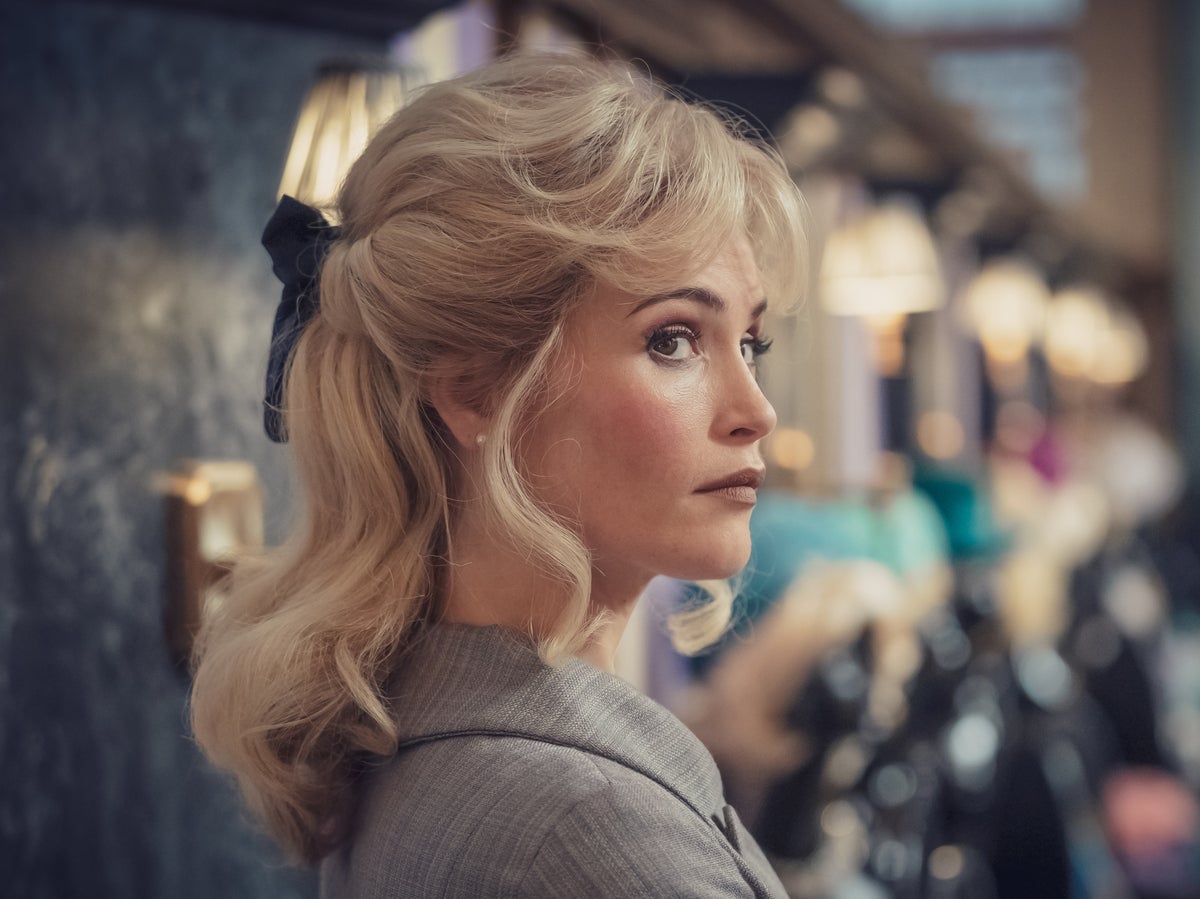
In Funny Woman, Gemma Arterton and Barbara Parker – the Blackpool beauty queen that Arterton plays – have a similar problem. They are both funnier and smarter than everyone around them. Barbara wants to be a comedy star, but first she must outsmart legions of lascivious, patronising men in suits. Arterton plays the role with a breezy ease and natural wit, but she must glide through a stilted script inhabited by cipher-like characters.
The show, adapted from Nick Hornby’s 2014 novel, is set in the swinging Sixties. When we first meet Barbara, she’s rolling sticks of rock in a local factory, and has just been named the 1964 Blackpool Belle. “I am here, if you want to ask me anything,” she tells a photographer from the local paper, who only talks to her father and never looks at her face. In other words, Barbara will not be your conventional, sweetly smiling pin-up girl. She leaves her family and local butcher fiancé to head to London, because “I’ve got this feeling in me gut that life’s got something more in store!”
Because Barbara may be beautiful, but she is also droll. We understand this mainly, at first, because she gurns a lot. Her character is basically “hot, but also funny and northern”. Like others – the secretly gay scriptwriters, the nasty sexist who takes Barbara on a date, and her harried houseproud aunt – it’s as though she’s meant to represent something, rather than be someone. Off she goes to London to work in the hat department of a posh shop, but it’s a disaster because she only gives honest opinions to customers. (“She’s from up north,” her boss tells a horrified patron.) After a haphazard, coincidental meeting, she charms an old school theatrical agent (Rupert Everett, in makeup and a wig that makes him look like a patched-up teddy bear) who persuades her to restyle herself as “Sophie Straw”. Next thing, she’s brazenly gatecrashed an audition held by her comedy heroes, a group of smarmy boys called the Awkward Squad, who recognise her gift.
Funny Woman does feel like a paean to a certain era of innocent, slapstick comedy. Barbara’s own humour has clearly been modelled on many hours of watching and loving Lucille Ball, and this can all be read within Arterton’s performance. The dialogue is knowingly pastichey, which is unfortunately not something all of the cast have the confidence to carry off. But if the show feels less than the sum of its parts, there’s something in its celebration of a plucky, bold heroine, in the vein of The Marvellous Mrs Maisel, that feels comforting, like a warm hug. It’s a nice show, with a nice message – and a very funny woman at its heart.







